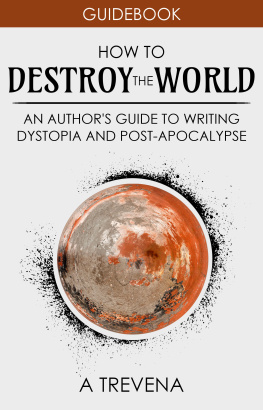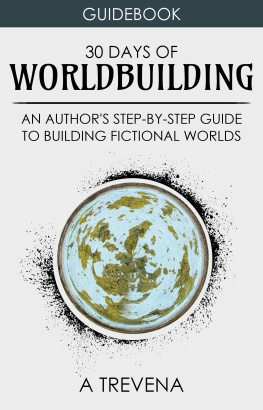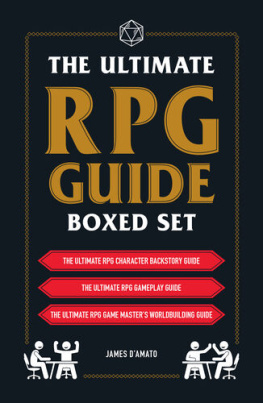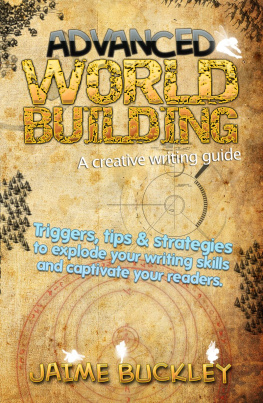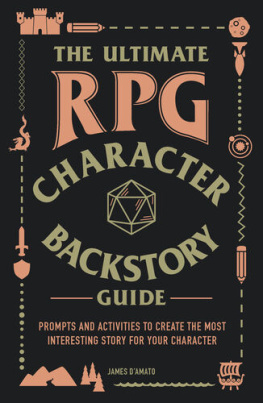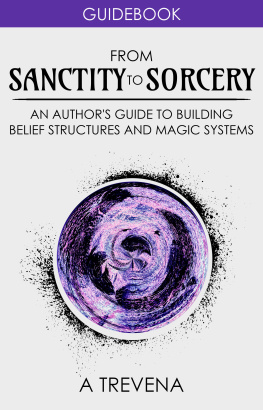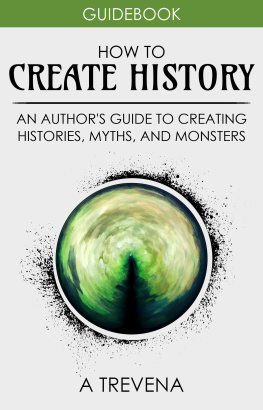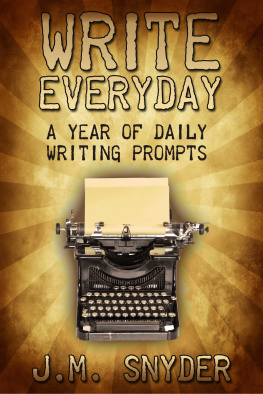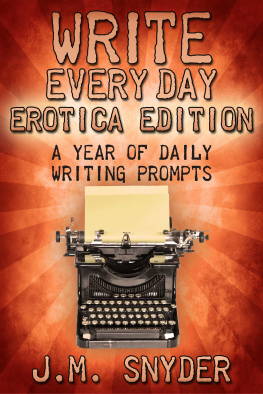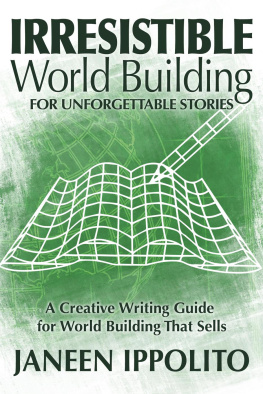Table of Contents
HOW TO
DESTROY THE WORLD
AN AUTHOR'S GUIDE TO WRITING
DYSTOPIA AND POST-APOCALYPSE
A TREVENA
Copyright 2020 Angeline Trevena
All rights reserved. No portion of this book may be copied or transmitted in any form, electronic or otherwise, without express written consent of the publisher or author.
Cover art by P&V Digital
AUTHOR GUIDES SERIES
DAYS OF WORLDBUILDING
An Authors Step-by-Step Guide to Building Fictional Worlds
H OW TO DESTROY THE WORLD
An Authors Guide to Writing Dystopia and Post-Apocalypse
F ROM SANCTITY TO SORCERY
An Authors Guide to Building Belief Structures and Magic Systems
HOW TO CREATE HISTORY
A n A uthors G uide to C reating H istory , M yths , and M onsters
COMPLETE WORLDBUILDING
An Authors Step-by-Step Guide to Building Fictional Worlds
angelinetrevena.co.uk/worldbuilding
INTRODUCTION
I am one of those authors who have been writing, pretty much, since they were old enough to hold a pen. I have a folder of old stories, typed up on an old typewriter, that I dont even remember having written.
I was rarely seen without a book in my hand, and spent every spare hour I had, buried deep in fantastical worlds. I was lucky in that my parents encouraged it. They never told me that I was wasting my time, or to keep my head out of the clouds. They even let me read at the dinner table, eating one-handed.
I was also lucky to have access to a local library, and quickly worked my way through the fantasy catalogue in their childrens section. I swept my way through all of the Choose Your Own Adventure books; not only following the adventures of kidspassing into a fantasy world to fight dragons, mounted on their bicycle steedsbut I got to control the stories. I could re-read them over and over, choosing different paths each time, creating a multitude of adventures for myself.
My love of speculative fiction had started young. It was my dads job to read the bedtime stories each night, all of us huddled together to listen. He often picked books from his own collection which, almost exclusively, consisted of classic sci-fi novels. And so, as a child, my bedtime stories were written by the likes of H.G. Wells and John Wyndham. Looking back, I suspect that The War of the Worlds and The Day of the Triffids were probably inappropriate choices for children about to go to sleep, but it must have caught my imagination. I will forever thank my dad for introducing me to such tales.
I was first introduced to dystopia in my late teens, when we read Margaret Atwoods The Handmaids Tale as part of our English Literature A-Level course. It was my first Atwood book, and it fuelled a continuing love of her words. It was also my first taste of what would come to be, not just my favourite genre to read, but also my favourite to write.
Alongside my English Literature A-Level, my other two subjects were Theatre Studies and Sociology. Learning about the work of Karl Marx, I became very interested in Marxism, seeing the value in his words and beliefs when applied to a modern society. I felt, within the scope of my limited life experience, that my eyes had been opened. Of course, the opening of our eyes is a lifelong process that will never be fully completed. But this part of my education was something of a revelation.
I grew up in poverty. I was a statistic. And, for the first time, I was seeing the relevance of this within society as a whole, rather than from the perspective of my own, personal, experience of it. I am also female, and that became more important, and more relevant in a wider capacity. I was seeing the world afresh, and viewing myself as a product of it, and a part in it. A player in the wider game of life.
Everyone tells you that, when you have children, you see the world anew, through your childs eyes. Eyes of wonder, where everything is magic. As a parent of two, I can tell you that this is absolutely true. You do rediscover a wonder in the smallest of things that you have long-since given up noticing at all. But there are many moments of similar unveiling-of-the-new in our adult lives. Sadly, they tend to be based more on becoming more cynical, or hardened, or cautious. They may not be bathed in the dizzy glow of childhood, but they are equally important, and transformative. They are still massive shifts in our understanding of the world, and ourselves, and deserve recognition.
We learn through doing, just as babies do, and, most of all, we learn through falling.
My fiction is an interpretation of my world view. My world view is an interpretation of everything that has influenced and pressed upon me in my life. My culture and its history, my peers, my parents, my personal experiences, both good and bad. It is also an interpretation of trying to step inside the other, and to see the world from another perspective.
At university I studied Drama and Creative Writing, and wandered away from my love of magic and fantastical worlds. I cant say why, it just happened. Perhaps I felt pressure to finally grow up. Perhaps I felt the oncoming cynicism of adulthood. Perhaps my university course pushed me towards literary fiction. Perhaps I simply needed a break from it for a while. I dont know.
After university, as I began to navigate the confusing and cynical world of adulthood, I barely read anything at all. For a long time, I hardly managed a handful of books a year. During this time, I read my first ever Stephen King book. It was, interestingly enough, On Writing that I picked up first, and I finished it in just a few days. And so, I was brought back to literature with a renewed desire to read, as well as to write.
Although Ive been writing since I was very young, it was never my ambition to make a career from it. I wanted to act. I wanted to be on stage. My whole childhood was filled with drama lessons, singing lessons, lessons in several different forms of dance. I was always performing; music concerts, amateur dramatics, school plays. If there was a spotlight, I was in it.
While I was at university, studying Drama, I discovered that I wasnt enjoying it as much as Id expected to. I had a long heart-to-heart with myself, finally accepting that the ambition Id had all of my life, my singular goal, simply wasnt what I wanted anymore. And it was difficult to let go of. This vision had shaped my entire life, my entire personality, and I had nothing to replace it with.
But, I couldnt pretend to myself anymore. And, as I continued with my degree, I came to the conclusion that I didnt want to be onstage, blinking into the spotlight, speaking someone elses words. What I wanted was to sit in the back of a darkened auditorium, watching other people perform my words. I wanted to write.
Even with this revelation, I still didnt imagine myself making writing into any kind of a career. The first Kindle wouldnt come on the market for another six years. The publishing landscape was a very different one to what it is today. Becoming a published author was a pipe-dream. One that seemed to rely far more on luck than any kind of talent. A who-you-know rather than a what-you-know industry. And for a young woman barely into her twenties, and still reeling from losing the footing of the one constant shed had in her life, it all seemed like an impossibility.
As part of my Creative Writing class, our tutor asked us to write a personal introduction to an imaginary book about ourselves. Much like this introduction youre reading right now. The difference being, in that imagined introduction, I wrote I cant imagine writing ever being anything more than a hobby for me. When I wrote that, I wouldnt have believed Id ever be writing one for real.

